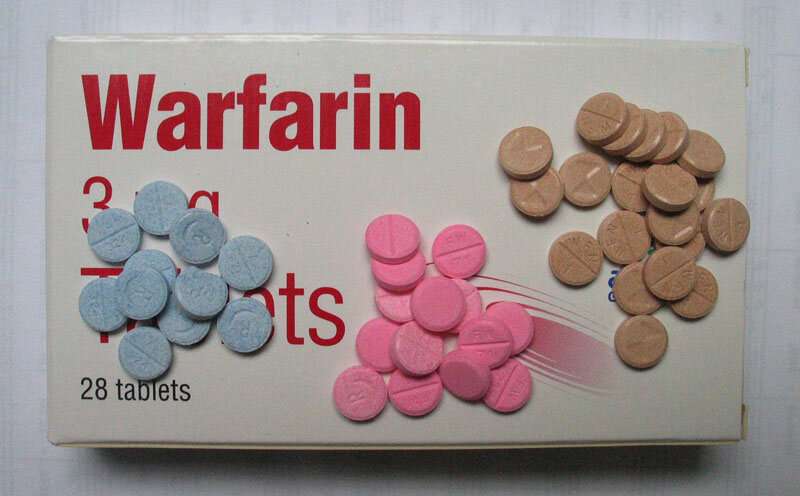Warfarin tablets, 5, 3 and 1mg. Pink = 5mg, blue = 3mg, brown = 1mg, 4 December 2004. Credit: Gonegonegone/Wikimedia Commons, CC BY-SA 3.0
For decades, patients with atrial fibrillation with a moderate or severe risk for stroke were prescribed the anticoagulant warfarin. With the emergence of a safer, more effective class of oral anticoagulants, new Yale-led research examines contemporary practices among U.S. clinicians between 2013–2018.
When taken for stroke prevention, Direct-Acting Oral Anticoagulants or DOACs provide an optimal therapy for many older adults without the risk of severe bleeding. Rohan Khera, MBBS, MS, an assistant professor at the Yale School of Medicine, and colleagues at the Center for Outcomes Research and Evaluation analyzed over 300,000 clinicians, including cardiologists, family, internal medicine, and advanced practice physicians.
While DOAC prescriptions among clinicians increased from 2013–2018, the majority of U.S clinicians predominately used warfarin instead of DOACs. In 2018 the authors found that DOACs represented nearly two-thirds of all oral anticoagulant prescriptions for cardiologists. That same year 1 in 5 general medicine practitioners exclusively prescribed warfarin.
The study was published Dec. 6 in JAMA Network Open.
The authors used national Medicare Provider Utilization and Payment data from 2013–2018. The findings highlight the underuse of novel therapies among clinicians. Similar patterns among health care providers were also reported in Circulation: Cardiovascular Quality and Outcomes for sodium-glucose cotransporter-2 inhibitors or SGLT2i in patients with type 2 diabetes. Cost may be a deciding factor. DOACs are significantly more expensive than warfarin—highlighting the need for better Medicare coverage. Improved access to this therapy has the added benefit of reducing health care costs on a national scale.
"Current guidelines have shown that these therapeutic agents are safe and effective at reducing the risk of stroke and embolic events. DOACs also significantly reduce all-cause mortality, especially among elderly adults. If the evidence suggests that most clinicians are only prescribing warfarin, we need to learn why and address these barriers through education and advocacy," said Khera.
More information: Kevin M. Wheelock et al, Clinician Trends in Prescribing Direct Oral Anticoagulants for US Medicare Beneficiaries, JAMA Network Open (2021). DOI: 10.1001/jamanetworkopen.2021.37288
Veer Sangha et al, Patterns of Prescribing Sodium-Glucose Cotransporter-2 Inhibitors for Medicare Beneficiaries in the United States, Circulation: Cardiovascular Quality and Outcomes (2021). DOI: 10.1161/CIRCOUTCOMES.121.008381
Journal information: JAMA Network Open , Circulation: Cardiovascular Quality and Outcomes
Provided by Yale University
























